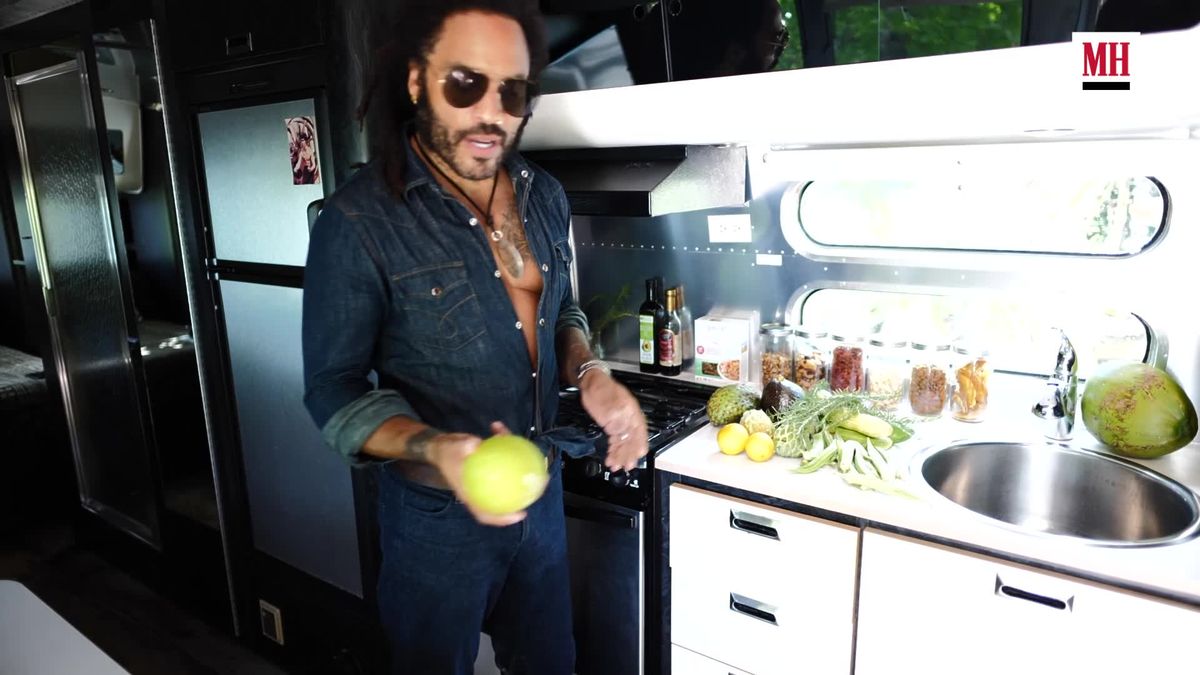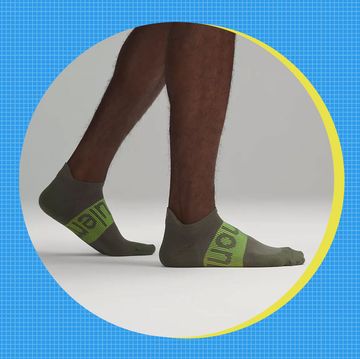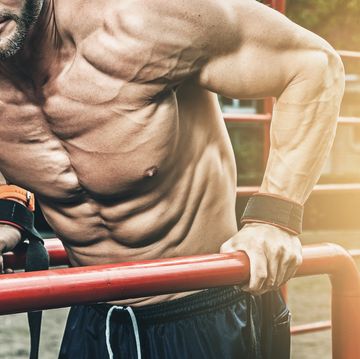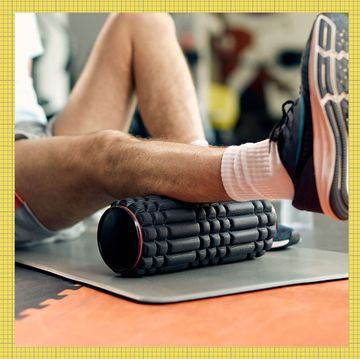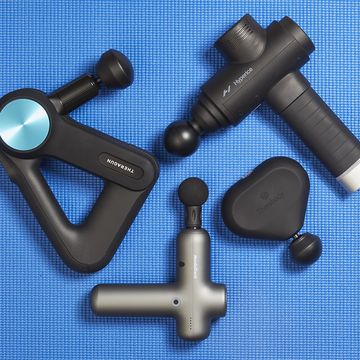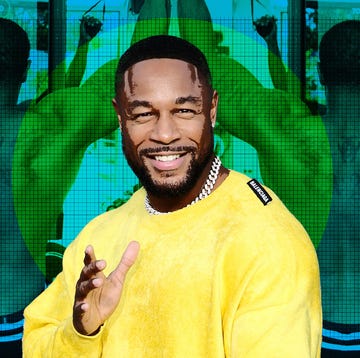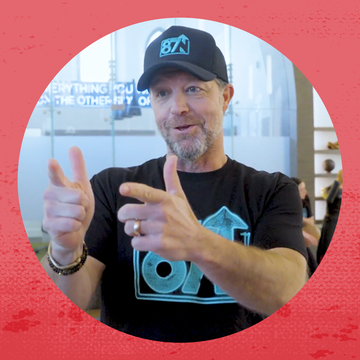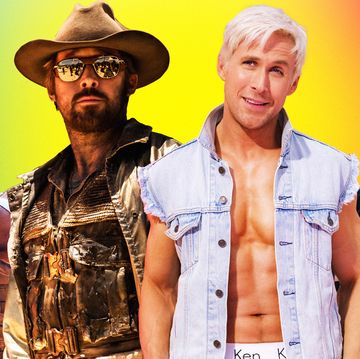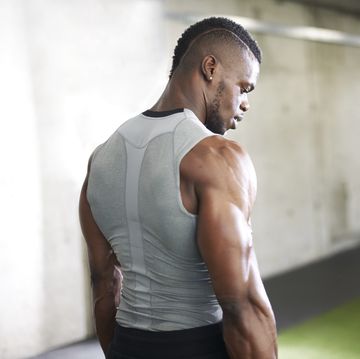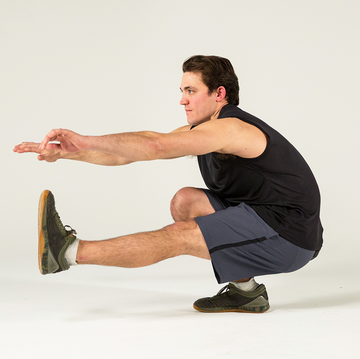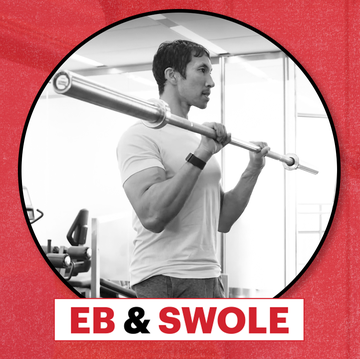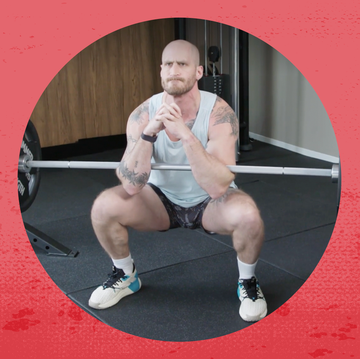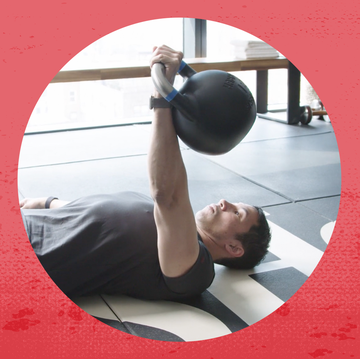For the first 50 years of John Darnielle’s life, fitness was not a major part of his daily routine. The musician, whose band The Mountain Goats will release their 19th full-length album Getting Into Knives on Friday, had plenty of other activities to fill his time (writing fiction, making records, Magic: The Gathering) and a rock ‘n’ roll touring lifestyle that wasn’t amenable to conventional workouts.
“I had a kickboxing workout I’d do in the 2000s that would be really cool and fun, but then I’d go on tour and take weeks off from working out,” Darnielle says on a recent phone call. “I was supposed to be doing workouts in hotels, but they involved running up and down stairs and doing burpees and pushups on the floor. It was just very hard for me to find motivation because I hadn’t found motivation.”
But then Darnielle—slowly, but surely—started getting really (really) into running. It all started two years ago when Darnielle downloaded the Couch to 5K app. He admits the hobby didn’t take off right away, with starts and stops and starts and stops until Darnielle eventually completed his first 5K last October (walking part of the way, but finishing nonetheless). And then he completed a 10K followed by a 21K in February. And just like that, Darnielle was hooked.
It’s not just that Darnielle loves the results of his more active lifestyle (he’s lost weight, his sleep is “spectacular”). One of Darnielle’s go-to mantras is “do the thing,” meaning it’s better to focus on being present than anticipating an outcome. Running allows him to be completely present, embracing the journey rather fixating on the destination. And now, after several successful half-marathons, Darnielle has his sights set on finishing a marathon by the end of the year.
“If I can make myself feel good in my body—really good—every other day, it goes a long way,” Darnielle says. “It bleeds out into every other aspect of my life.” That’s great news for devoted fans of The Mountain Goats, who will soon be gifted with a third new album in a year-and-a-half. It’s a band in the midst of a creative streak showing little signs of slowing down as they approach 30 years since Darnielle first released Taboo IV: The Homecoming as The Mountain Goats in 1991.
Ahead of the Getting Into Knives release, we talked about creativity’s impact on mental health, sharing new music in a pandemic, and why Darnielle does his best to preach a “gospel of positivity”—except when it comes to fascists.
Getting Into Knives is the third Mountain Goats record in a year-and-a-half, and you’re also an accomplished prose writer. It feels like you’re constantly working. How do you manage to produce creatively at such a high clip?
The truth of the matter is I do what comes naturally to me, but I do have ways that I think about it that I think inform that. One of them is the way that a lot of people imagine artists to work, I imagine that differently. People talk about writer’s block. I don’t believe in writer’s block. Now, if you’re talking about someone who suffers from chronic depression or something, that’s different.
But I wouldn’t identify that as writer’s block—I’d say that my depression is stopping me from working. But I think that writer’s block is a weird way of configuring artists’ labor as special. It’s not special. It does something special, but the labor is just labor. It’s bricklaying. You learn how to do something and then you wake up and you do it. That’s how I look at it. On any given day, I should be able to put in some work if I have the time if I want to and/or if I need to. If I didn’t have two kids to take care of, this year would’ve been absolutely ridiculously prolific.
You’re a prolific artist, but you also come across as very online as well. You have a very active Twitter presence. What do you think that platform is doing to us in terms of how we parse information and connect with one another?
It’s hard for me to answer in a way that you’d be able to harvest anything useful from it. The main thing is dopamine response and the internet. The rest of it is just behavioral. As an artist, I don’t have to be on Twitter. The way I use it is to try and keep it positive unless we’re talking about fascists. Other than that, I’m not going to get in any arguments with anybody. I don’t want to hear anything negative. I don’t have any response. Why would I bicker with people? I don’t want to bicker with people. It’s a waste of time.
The only negativity I have time for is for people who are genuinely oppressing others. I think that’s a good rule. Most people don’t respond that way because of the dopamine. You get into an argument with somebody and your blood starts to heat up, and you physically get a little high. That’s super unhealthy.
How does not being able to tour this upcoming record and play it live impact your relationship to the songs?
There are so many levels to learning the songs for the band. This is stuff that most people don’t think about, but you think about a lot if you’re in a band. I write them and I know them in one way. Then we play them together and we know them in another way. Then we record them and we learn more about them in another way. But songs don’t really become what they are until we can share them in rooms.
Like “No Children.” I love the recording of “No Children,” but what really is “No Children”? It’s what it truly is when we’re playing it in a room full of people who really want to hear it. The song itself, the recording, they’re templates. And they’re really nice templates we should be proud of. But the song happens in the room. I picked that up from Ben Harper. We grew up together. And one piece of wisdom he dropped on me was, “Always make it better live.”
You're a pretty disciplined runner now. How important is running to you in terms of your daily routine?
The beautiful thing about taking up running when you’re middle-aged—I don’t like saying that, but I am—you feel like at this point, all the big changes are done. You can try to pursue new hobbies, but most of us will find that if we get into something new, the spark doesn’t ignite like it might have when we were younger. It’s also harder to find time to pursue hobbies. You might get into nonfiction or biographies, but you’re not going to be as diligent as you once were. With running, it was going to be every other day no matter where I am. All I need is shoes and shorts, which resulted in some freezing-cold runs in Europe where I bought some long pants.
But once I locked into that, the gift was it was something new to be into. Super into. It’s something I can’t recommend strongly enough. Anything you say you’re going to do every other day and make the time, it’s transformative in an extremely rewarding way.
What advice can you give someone who’s trying to balance being creative and a sense of well-being during this time?
I think it’s presumptuous to give advice. I don’t consider myself exceptionally wise so I can only describe what I do, and that ends up being a much better way to approach the question.
I try to keep the focus on what I’m doing as opposed to what everybody else is doing. We live in a time where everyone is documenting everything all the time and how they’re feeling. Now part of that is a healthy correction: how people feel does matter. It’s not right to say you shouldn’t focus on your own feelings. But I also think that when we’re living in our reactions all the time instead of what we’re reacting to, then the focus goes away and you wind up with self-obsession. Self-obsession never ends well. It’s always going to end up with you being not the person you want to be in a trillion different ways.
So I’m always intensely focused on my work. There’s a real religious craving for this. The Quakers would say, “Hands to work, hearts to God.” My hands are working and my heart is focusing on bigger things. I’m not looking in the mirror, I’m looking at what I’m doing. We’re supposed to be giving all of our works to God. Stay out of the results, people say. I’m not focused on how I’m going to feel when I’m done or what it’s going to do for me or how it’s going to make me look or any of that. I’m focused on what I’m doing and doing it well.
This conversation has been lightly edited for length and clarity.


